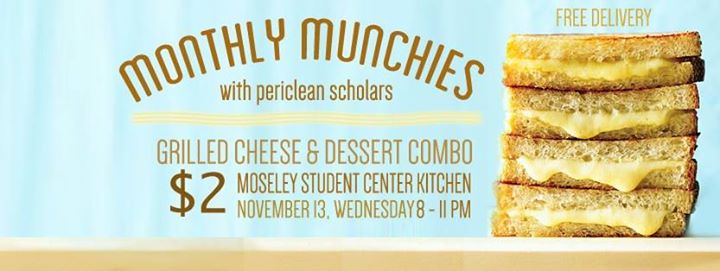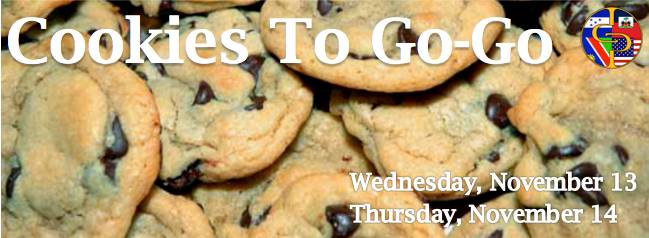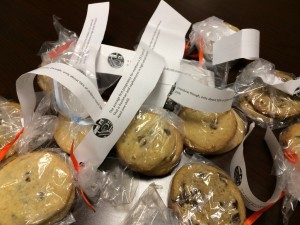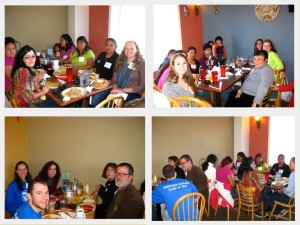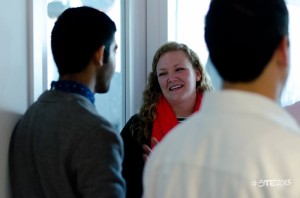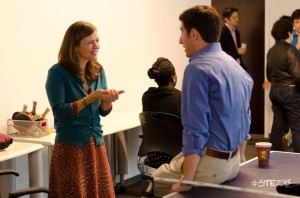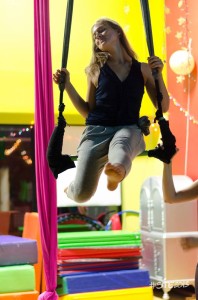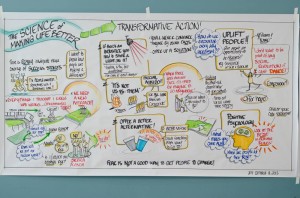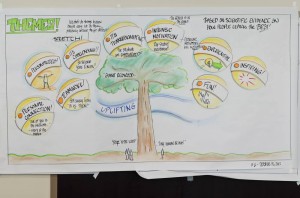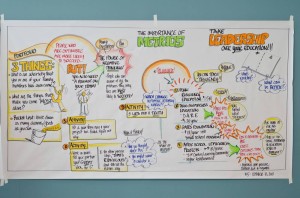On Monday November 18th, we held a Honduran Food Fiesta, and here’s how!
First our group was thinking of doing a cliché Moseley table bake sale, but with some suggestions from the class this idea evolved. Though the Honduran Food Fiesta took a lot more planning than the bake sale would have, it was immensely better because it raised awareness of the Periclean program, and of Honduras.
To begin, we went to the international grocery store to buy ingredients (a few other things were picked up at Dollar General and Lowe’s Foods). The international grocery store was amazing, there was such a vast selection, and there was even a pile of live crabs in the seafood section. We mostly followed the recipes from Suyapa, a woman native to Honduras who had previously taught us how to prepare Honduran food. We bought plantains, chicken, chayotes, carrots, onions, rice, eggs, and other spices and little things necessary for the recipes we were hoping to complete.
We came together the night before and began preparation of some of the food, knowing that this would be a big undertaking and the sooner we began preparing for it, the better. We started cutting plantains, chayotes, and the carrots. After all the plantains were cut we began frying them, and the kitchen became a sauna. We also prepared buñelos beforehand, hoping that we were doing it right because we found this recipe on our own.
The next day after class let out at 3:20, everything got crazy. We were running around from the Oaks and back to Moseley trying to think of every little detail. We began cooking, only to find out that the burners wouldn’t turn on, and seemed to run into many similar obstacles throughout the rest of the preparation. We began making the rice at 4:45, and got extremely stressed once we realized that our food was not going to be completely ready by the time we finished preparing. We were vigorously chopping onions, cutting chicken, and throwing the recipes together. The vegetables just simply refused to cook, and we were doing everything we could to get all of our dishes (chicken and rice, the rice by itself, plantain chips, and the vegetables together. Luckily the desserts (brownies, chocolate chip cookies, and buñelos were already done, I don’t know how we could have juggled those too. Finally around 5:10, ten minutes after our event had officially begun, all of the rice was put out, music was turned on, and a PowerPoint of Honduras played in the background.
Many of our first customers were our fellow Pericleans; we felt so fortunate to have classmates that are willing to support our event and our overall program. In the initial half hour of the Fiesta, we discovered how helpful it was to have a Phoenix card reader. This allowed people to use Phoenix cash to pay for the meal; seldom do college students carry a lot of cash on them on a regular Monday, so this accessory added an extra convenience factor. Another decision we made turned out to be a very good one: making vegetarian rice and rice with chicken in it. Many of the people who came to our event were concerned with what had meat in it. Having a no meat option increased the number of potential students this event appeals to, which means that more people were able to come.
The most popular dishes we made were the rice dish and the desserts. Around 6:30 we found ourselves refilling the tins filled with rice and getting more vegetables to add. The traditional Honduran desserts were also a hit. They are somewhat simple: fried dough covered in powered sugar, but they were a great way to end the meal and added an aspect of Honduras’s culture. The music was also very popular among the people that came. Many Spanish-speaking students found themselves singing along to the music playing in the background of our informational PowerPoint. It was great to see people having fun while also enjoying learning about the country of Honduras.
After the peak around 7, we started cleaning up our supplies around 7:30. At the end, we didn’t have any desserts left and only had three boxes of juice left over. The plantain chips were also scarce. When comparing this to the amount of food we transported to the kitchen from the Oaks, it could be said that the event was a success. We ended up making around $100 in cash and $50 in Phoenix cash. Our group is excited to present these funds to the leaders of the Hogares Sanos group to use however they see fit. We decided to donate the money to this cause because the amount was not significant enough to be influential in our class fund, but it is enough for the group to do something fun with the women.
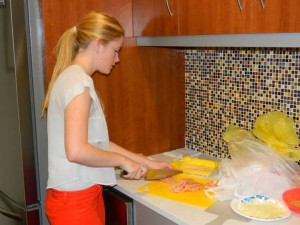
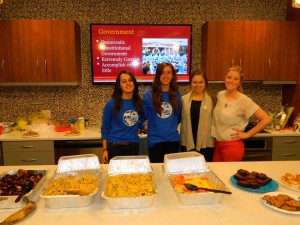

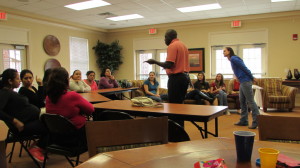
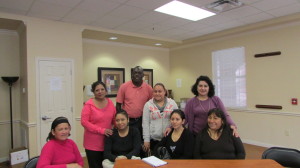
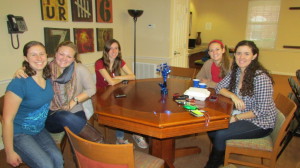
 Follow
Follow


